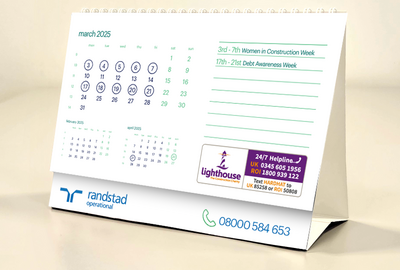Specialist recruiter, Randstad has today revealed that one in six Brits (17%) are working from home because they are unable to access fuel to make their daily commute.
In a poll of 439 jobseekers* who were asked ‘are rising energy prices and fuel shortages affecting your appetite to work from home?’, it was also revealed that 5% of workers admitted to ensuring they venture into the perfectly climatised office environment to avoid racking up a hefty gas bill amid rising heating costs.
As fuel panic buying swept across the country, many were faced with either huge queues to get fuel, closed petrol stations or left with an empty tank. While a third of Brits reported missing their daily commute when asked earlier this year, one in six are now unable to even make it into work, unless they consider public transport, walking or cycling.
With UK households warned of a further 30% rise in energy bills next year and analysts predicting that energy price cap could soar by £400 in the spring - about 30% higher than the record £1,277 level for the cap set for winter 2021-22, 1 in 20 have adopted smarter and more tactical thinking around securing a comfortable working environment at no extra cost. If they have the fuel to make it in.
While the majority of respondents (78%) aren’t phased by fuel shortages or rising energy bills affecting their physical location, the importance of a flexible working environment has once again been highlighted as something that employers need to be offering in order to stay competitive.

While we have worked hard to ensure our employees are given enough freedom to flex their working schedule between office and home settings, there will always be uncontrollable factors such as severe weather conditions, or in this case, an unforeseen fuel shortage which could prevent them from getting to the office.
Despite the normalisation of hybrid working and flexible schedules post-pandemic, our latest survey of 6,000 candidates revealed that only 17% of people would definitely feel confident in asking their employer for flexible working; 29% probably would; 26% were unsure; 17% probably wouldn’t, and 11% definitely wouldn’t. We need to ensure that as employers we are promoting and encouraging a flexible working environment where suitable, and employees have the comfort in knowing that they have the freedom and the right tools to work from home effectively should they need to.
Notes to editors
Poll of 439 visitors to www.randstad.co.uk:
Are rising energy prices and fuel shortages affecting your appetite to work from home?
- no, I don't mind 78%
- WFH because I can't get fuel 17%
- Going to work to save on bills 5%
Randstad is the global leader in the HR services industry. We support people and organisations in realising their true potential by combining the power of today’s technology with our passion for people. We call it Human Forward. In 2020, we helped nearly two million candidates find a meaningful job with more than 236,000 clients. Furthermore, we trained close to 350,000 people. Randstad is active in 38 markets around the world and has a top-three position in almost half of these. In 2020, Randstad had on average 34,680 corporate employees and generated revenue of € 20.7 billion. Randstad was founded in 1960 and is headquartered in Diemen, the Netherlands. Randstad N.V. is listed on the NYSE Euronext (symbol: RAND.AS). For more information, see www.randstad.co.uk



